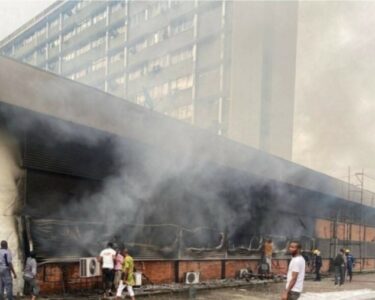Crude oil theft in the Niger Delta
Worsened by local complicity and weak oversight
Summary
- Tantita Security Services has uncovered nearly 4,000 cases of illegal oil activities since 2022
- Locals, driven by poverty and fear, are increasingly complicit in aiding oil theft operations
- Tensions rise between Tantita and the Navy amid allegations of collusion with oil thieves
Niger Delta, Nigeria – Crude oil theft in Nigeria’s Niger Delta remains a critical national concern, costing the country billions of naira in lost revenue and causing severe environmental and socioeconomic harm.
Tantita Security Services Nigeria Limited, under the leadership of former militant leader Government Ekpemupolo (popularly known as Tompolo) and managed by High Chief Kestin Pondi, has been at the forefront of efforts to tackle this persistent threat since being contracted by the Nigerian National Petroleum Company Limited (NNPCL) in 2022.
Tantita’s interventions have contributed to a marked increase in Nigeria’s crude oil output, with production figures nearing 2 million barrels per day. Their operations have resulted in the discovery of thousands of illegal crude oil connections and refineries—3,963 incidents were recorded between August 2022 and November 2024 alone, including 702 illegal connection points and 1,784 refineries.
However, a recent statement shared via the Nigerian Tribune on June 30, 2025, spotlighted a growing complication: the involvement of local citizens in the theft operations.
Many residents in oil-producing communities reportedly support or participate in illegal bunkering activities due to chronic unemployment, economic hardship, and perceived neglect by government bodies such as the Niger Delta Development Commission (NDDC). This local complicity is compounded by fear, with community members often reluctant to report incidents for fear of reprisal or wrongful targeting by security forces.
Oil theft operations are highly sophisticated, involving illegal pipeline taps, barges, and vessels. The network is believed to include not just local actors but also corrupt government officials, some security operatives, and foreign collaborators. Tantita has publicly accused certain elements within the Nigerian Navy of colluding with oil thieves, an allegation the Navy has dismissed as “cheap blackmail.”
Beyond economic loss, the environmental cost of oil theft is staggering. Spills and sabotage have polluted rivers and farmland, tainted air quality, and exposed communities to severe health risks, including increased child mortality and malnutrition.
Observers note that the scale and complexity of oil theft in the Niger Delta reflect systemic failures, including weak regulatory oversight and poor infrastructure security. Addressing the crisis, they argue, will require a multi-pronged approach: strengthening law enforcement, improving local livelihoods, and ensuring that government agencies fulfil their development mandates in affected communities.







